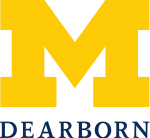The University of Michigan-Dearborn, an integral part of the University of Michigan system, was established in 1959 with a commitment to providing excellent higher education in southeastern Michigan. Situated in the suburban city of Dearborn, the university's campus exhibits the blend of urban vibrancy and suburban charm, making it an attractive location for approximately 9,000 students. It offers a wide range of undergraduate, graduate, and professional programs across four colleges: Engineering and Computer Science; Business; Arts, Sciences, and Letters; and Education, Health, and Human Services.
The University of Michigan-Dearborn stands out for its unique cooperative education (co-op) program in the College of Engineering and Computer Science, which integrates classroom learning with professional experience, allowing students to gain valuable hands-on experience while pursuing their degrees. Another unique aspect is its strong partnership with the automotive industry, given Dearborn's historical ties to the auto sector and its proximity to the headquarters of Ford Motor Company. This relationship fosters exclusive internships, research opportunities, and employment pathways for students. The university's Environmental Interpretive Center underscores its commitment to sustainability and provides an educational resource for students and the community to engage in environmental stewardship.
The university consistently receives recognition for its positive community impact and academic excellence. University of Michigan-Dearborn is known for fostering small class sizes that ensure personalized attention, which greatly enhances the educational experience. Its College of Business is regularly ranked among the top business schools in the Midwest, and the university's efforts in community engagement have been honored with the Carnegie Classification for Community Engagement. Further, the institution contributes significantly to local economic development through community-focused initiatives, such as the iLabs' Center for Innovation Research which works closely with local businesses and entrepreneurs, reinforcing the symbiotic relationship between academia and industry.
Despite its many strengths, University of Michigan-Dearborn faces some challenges. Like many institutions, it contends with the pressure of maintaining affordable tuition while offering competitive programs and retaining high-caliber faculty, particularly in a higher education landscape that is facing decreased state funding and demographic shifts. Additionally, as a regional institution, it might grapple with attracting a geographically diverse student body, given that students tend to be predominantly from the local area. These factors present an ongoing test to the university's mission to blend a high-quality University of Michigan education with the practicalities of a smaller campus setting.



